- Home
- Rose Tremain
The Colonel's Daughter Page 9
The Colonel's Daughter Read online
Page 9
‘Such a waste.’
‘What does?’
‘Going out. All that eating.’
‘We can afford it, darling.’
‘Oh, it isn’t that.’
Henry took off his glasses. ‘Well, I’m damned if I –’
‘Look at our stomachs! Look at yours. So crammed with food you couldn’t push any more in. And mine, a dreadful bulge.’
‘Oh, Lal, for heaven’s sake.’
‘It’s horrible to eat and eat. What’s it for? Just to make us heavier and heavier till we die with all this weight.’
‘You’re not fat, Lal. I’m fat! I’m not ashamed of it.’
‘Why.’
‘Why what?’
‘Why aren’t you ashamed?’
‘Because it’s my life. I can be any shape I choose.’
No, she thought, that’s wrong. I am haunted by the wrongness of things.
‘Henry,’ she said, ‘I hate it –’
‘What?’
‘I hate it when –’
*
Larry Partridge was a popular man. ‘We’re so lucky,’ ran the county’s favourite saying, ‘to have you so near us!’ They didn’t mean Larry himself (though they liked his silver-haired politeness), they meant his restaurant which, every night of the week except Tuesdays when it was closed, was packed with them.
‘This part of the world was a culinary desert before you came, Larry,’ they told him, ‘but now we really are lucky. Partridge’s is as good as anything in London and so much more reasonable.’
Of course they had been cautious – caution before ecstasy – because, glancing through the windows of the old run-down pub he had bought, they had noted that the old run-down walls were becoming resplendent in indigos and fruit-fool pinks and this had made them nudge each other: ‘Well, you can tell what he is, duckie!’
Now Larry’s tightly-clad buttocks circled their contented after-dinner smiles. He extended to each table a limp-handed greeting and waited for the superlatives to flood his ears like warm water. ‘You’re so imaginative with food, Larry!’
‘The sauce on the quenelles was out of this world, Larry.’
‘We’ve had a superb meal, Larry, really superb.’
*
Larry’s parents still lived in Romford. He had moved them from their council flat to a detached house. However, Larry’s father still called him Lawrence. Lawrence: to say the name to himself was to remind Larry of his father, was to make him shudder as if the thin shadow of the man – neat in his dark green suit and white shirt, ready for work, working all his life, never giving up his dull and hopeless work till one day he would die at it – passed between him and the sun.
For Larry, Lawrence was dead, buried hideously down in the greasy kitchens of the catering school. Lawrence, born in poverty, reared in repression, was the detritus from which Larry, in all his colourful glory, had sprung. He had sprung in 1964, the year he had met Edwin, and each year since then he had bloomed a little more.
‘What can I say about Edwin?’ Larry had asked his mother at the time, ‘except that I love him.’
Oh, but they were not prepared for this kind of love, she told him. They had never thought that their own Lawrence, so popular with all the local girls . . . No, it had not once entered their minds and she really did think he should have given them some warning, some indication that he wasn’t what they thought . . .
Larry left his parents’ flat in Romford and moved into Edwin’s flat in Fulham. Edwin found him a job in a local restaurant. Lawrence in Edwin’s careful drawing room became Larry, became lover and loved.
All the past, like a dirty old bandage no longer needed, began to unwind and fall off; Larry was healed.
Edwin’s money purchased the pub in 1972. One end of the large building was converted into a flat and the move from Fulham was made. A year later, Partridge’s opened, each of its walls a reflection of Edwin’s taste, Edwin’s imaginative eye.
Larry moved with perfect ease and happiness about his steel kitchen, liking his own little kingdom the better because just outside it was a rich land that he shared with Edwin.
‘I do it with love,’ Larry sometimes said of his cooking. But the great golden weight of his love for Edwin he seldom talked of. It hung inside him, a burdensome treasure that he knew would never leave him.
Visitors to Partridge’s never saw Edwin. Larry’s nightly ritual of passing from table to table to receive his cupful of praise did not include him. He was glimpsed occasionally; there was talk of him, even questions to Larry.
‘But it’s all yours,’ Edwin had said to Larry when the restaurant opened. ‘My bit’s done. Don’t involve me any more. Then the success and the glory will really belong to you.’
And even the invitations that came – to the lunches and the county cocktail parties – Edwin would never accept. ‘You’re their celebrity, Larry. Why muddle them?’
Edwin was never jealous. ‘I am quite free of it,’ he once said to Larry. ‘I simply do not feel it. Jealousy is the vainest – in all senses – of the emotions. You must learn to rid yourself of that before it works its decay.’
But Larry had known no human relationship in which jealousy had not been present – sometimes screamed out, sometimes unspoken, but always there to stain and spoil.
And he knew that his love for Edwin was a jealous, greedy love. He thought to himself: “Edwin is my life. How can I not be jealous of my own life?” Whenever Edwin went away, the weight inside him became a dead weight, immovable, full of pain.
When Edwin returned, he often wanted to run to him, discovering in his body a sudden miraculous lightness.
*
Daily, Larry watched Edwin for any sign of discontent. Three years younger than Larry his hair was still fair and thick. With an impatient gesture of his hand, he would push back the flopping hair several times in an hour.
Whenever he was angry or agitated, he would push back the hair almost constantly.
Larry dreaded his anger. Its occasional appearance in a man as contained and rational as Edwin was unsightly. Larry couldn’t look at him. He would turn away, trembling inside.
But in the hundreds of times he had turned away like this over the years, there was not one time that he had not dreaded to turn round again, afraid suddenly that all the hubbub of Edwin’s anger was nothing but an echo and that, unnoticed, Edwin had quietly slipped away and left him.
Edwin did little with his time. He gave to unimportant things the careful attention of his hands. He grew roses. He did occasional pen and ink drawings of old houses, which Larry collected and had framed.
He made an elegant coffee table out of glass and wood. He wrote a little poetry, always laughing at what he had written and throwing it away.
Money had bought Edwin a studied indolence. ‘I’m really a rocking-chair man,’ he once said to Larry. ‘The little motions I can make are enough.’
Certainly, they were enough for Larry. He was quite content for Edwin to be just as he was – as long as he was always there.
*
Lal said: ‘I’ve worked out that anagram.’ Several moments had passed in silence. Henry had filled in two more clues in The Times crossword. Lal had walked to the study window and looked out at the bird table she festooned in winter with strings of nuts and pieces of coconut. The nuts were eaten, the coconut pecked dry: it was springtime.
Henry looked up. ‘What was that you said, Lal?’
‘Two words, four and three, “Facts of severing the line”.’
‘I’ve got that one, haven’t I?’
‘I don’t know. It’s “cast off” – anagram of “facts of”.’
‘Let me see, “cast off”? You’re right, Lal. Good for you.’
Henry filled it in. Then he looked up at Lal standing by the window. ‘Made up your mind yet, darling?’
Lal knew that he meant the dinner, knew that she had made up her mind. She didn’t want to go out with Henry on that day.
A reward, she thought – a more fitting one for fifty years of marriage – should be to spend that evening alone, without him.
For the clear lines with which she encircled the petty wrongnesses of her life became each time like the lines drawn by aeroplanes in a blue sky: they fuzzed and were dissipated and the spaces where they had been were filled up, so that only a moment later you couldn’t see that they had been there. Life went on in the old way.
In the mass of years she kept drawing and redrawing lines, kept believing that things might change one day and she would rediscover something lost.
‘I have made up my mind,’ Lal said. ‘I think we should go out as you suggested. It would be nice to go to Partridge’s, don’t you think?’
‘Well, I do.’
‘Only . . .’
‘What?’
‘It’s a Tuesday. Larry shuts on a Tuesday.’
‘Damn me! Never mind, we’ll make it the Monday. Why not? We can toast the midnight. As they used to say in the army, always better to have the feast before the battle; you might not live to enjoy it afterwards.’
Lal turned and stared at Henry. ‘It has been a battle. The battle’s going on . . .’
‘Oh come on, Lal, not one of your frettings.’
‘We never were really suited. Henry – only at first when we used to want each other all the time. We should have parted when that cooled off. We’d had the best of each other: we’d had all the wonderful things.’
‘What rubbish you do talk, Lal. As couples go, we’ve been among the lucky ones. You name me the day when we’ve had arguments. I could count them on the fingers of one hand.’
‘Not arguments, Henry, but a battle going on inside . . .’
‘The trouble with you, Lal, is you think too much. We’re old now. God bless us, so why not give your mind a bit of a rest?’
Lal turned back to the window. ‘You’ll book the table, then, Henry? I do think that if we are going to Partridge’s, it would be safer to book.’
*
Spring arrived on the Saturday in the shape of a deep blue sky and a softening of the breeze. Larry never opened the restaurant for lunch. ‘It simply is not fair on Edwin,’ he said. Instead, he usually prepared a light lunch for the two of them and they sat by themselves in the restaurant, enjoying its peace.
Edwin always washed up. He did the job so carefully that their few plates and dishes sometimes took him half an hour, a half-hour usually spent by Larry, a cigarette in his curling mouth, in blissful contemplation of his friend. He took as much care over these lunches as he did over his evening menus.
After all, he said to himself, this is our home. Edwin has a right to my time. And to cook for Edwin was pure pleasure. Often, just before sleep, his mind would turn up some little dish that he would make for Edwin as a treat the following day.
Early on the Saturday morning, wandering out onto the patio (laid in intricate patterning of stone and brick by Edwin) Larry felt the warmth of the sun and decided he would lay a table for them outside, make them a cold lunch and serve it with a bottle of hock. He imagined this meal and others like it that they would share during the coming summer, and his imaginings laid on him a hand of such pleasurable gentleness that he didn’t want to move.
Indeed was poor suffering Lawrence dead! He was dead without trace and only Larry, head crammed with joy, existed now.
‘Larry!’
Edwin called him from an upstairs window. Larry looked up and saw that Edwin, whom he had left sleeping, was dressed.
‘I’m going out,’ Edwin called.
‘Where?’
‘Just out.’
‘Oh.’
Larry knew that he shouldn’t question him. This was what Edwin hated most.
‘Will you be back for lunch?’ he asked.
‘Yes.’
He was relieved. They would still have their lunch on the patio and now, if Edwin was going out, he could spend the whole morning in the kitchen, do some preparation for the inevitably busy Saturday evening as well.
Larry waved to Edwin, saw him nod and then disappear from the window. He made himself stay where he was till he heard Edwin’s Alfa Romeo roar out of the gate. Then he wandered into the kitchen and tied on his apron.
Larry made an iced tomato and mint soup, a cold curry sauce for a roasted chicken and a watercress salad. He spread a pink cloth with matching napkins on the wooden patio table and set two careful places, each headed by a tall stemmed hock glass. He then went back into the kitchen, checked the contents of his huge fridge and larder against the evening menus for Saturday and Sunday, made a shopping list, took a basket and got into his car.
By the time I get back from shopping, he thought to himself, Edwin will be back; then I can open the hock.
*
When Lal woke on the Monday morning she experienced that bleakest of sorrows – the realisation that a dream had tricked her with a few seconds’ happiness and was now gone.
She had dreamed herself young. She had dreamed a bedroom in someone’s country house and a corridor outside it which creaked under Henry’s footstep as in the dark he fumbled his way towards her room.
She had laughed a secretive laugh full of joy as she lay under the clean linen sheet and waited for him. Their wedding was in a few weeks’ time. Then there would be no more creeping down corridors: she would be Mrs Henry Barkworth and the strong white body under the silk dressing gown that now shuffled towards her, moving slowly, prudently, but running, running like a hare in its desire for her, would lie in a big bed beside her – hers. Yes, Lal remembered, there had been a great feasting of love between her and Henry. Sex had never frightened her as it seemed to frighten some women of her sheltered generation. To touch and be touched became, after Henry’s rough taking of her, all. All life, save this, paled and receded into insignificance.
For days together she would not let Henry go to his office, but kept him with her in their wide, comfortable bed.
‘We fit so well!’ she laughed. ‘How could anything be more perfect?’
Then came the War. Lal’s children were both conceived during Henry’s brief periods of leave and born when he was away. When the War was over and he came home, he made love to Lal like a weary stranger. She wept for what they had lost.
Lal sat up, rubbed her eyes with a white hand. It was strange that she could dream a desire she had long since ceased to feel. Life was so stale now.
‘We smell bad, Henry and I,’ she thought bitterly. ‘We’re blemished and fat and no good to anyone. Why do we go on and on?’
The day was interminable. Lal felt bilious, as if the meal they would gobble up at Partridge’s was already inside her. She felt like crying. But I’ve shed so many tears for myself, she thought wearily, why shed more? So the evening crept towards her.
She thought as she dressed for it of the wine Henry would order: a heavy claret that they would both enjoy but which, soon afterwards, would give her indigestion and a headache. Fifty years! We’ve had fifty years together, so now we celebrate, but the unremarkableness of all that time, the waste of it all . . .
‘Cheer up, darling.’
Henry was breezy, tugging on his braces, smelling of aftershave, his bald head gleaming.
‘Oh, was I . . .?’
‘You’ve been miles away all day, Lal. Something wrong? Not feeling up to it?’
‘What? The meal?’
‘No! Not just the meal – the occasion!’
‘In a way not. We don’t need to make any fuss, do we?’
‘No, no fuss. But a bottle of fizz at least, don’t you think? I asked Larry to put one on ice for us.’
‘Yes.’
Lal dabbed her face with powder. She had decided to wear a black dress – the one concession to her real feelings. Pinned to the dress would be the diamond and sapphire brooch Henry had given her on their wedding day.
There was a small bar just off the dining room in Partridge’s; it was too small really for
all the diners who congregated there, but was pretty and restful, done up by Edwin in two shades of green. A fine tapestry drape hung down one wall and now Lal leaned back against this, her head almost touching a huntsman’s knee behind her.
One of Larry’s lady helpers (he had two, both about forty-five and confusingly called Myra and Moira) had brought Henry the champagne he had ordered and he was pouring it excitedly like a thirsty schoolboy might a longed-for Coke.
‘This is the stuff, darling!’
Lal smiled and nodded. She often thought that the reason for Henry’s pinkness of face and head was that he did simple things with such relish.
‘So,’ he exclaimed, holding up his own glass, ‘this is it then, Lal! Happy anniversary, darling.’
Lal only nodded at Henry, then took a tiny sip of her champagne. ‘It’s a long time,’ she said, ‘since we had this.’
The restaurant was seldom full on a Monday night. The little bar was completely empty except for Henry and Lal, so that to make some accompaniment to their sipping of the champagne Lal needed to talk.
‘Larry’s not around, is he? He usually pops into the bar, doesn’t he, with his apron on?’
‘I expect he’s hard at work. We wouldn’t want Larry doing anything but concentrating on our dinner, would we?’ Henry said jovially.
‘I like Larry,’ she said.
‘He’s a clever cook.’
‘I think he’s quite shy underneath all that flippety talk and showing off his bottom.’
‘Lal!’
‘Well, he does. Henry. He shows it off all the time. Haven’t you noticed the way he ties his apron so carefully, so that the bow just bounces up and down on his behind when he walks?’
‘No, I haven’t noticed.’
‘I mean, a less shy person wouldn’t need the bow, would he?’
‘Haven’t a clue, Lal.’
‘Oh, they wouldn’t definitely. You can tell that Larry’s very dependent.’
‘On what?’
‘Not on what – on Edward or whatever his name is: his friend. He loves that friend and depends on him. Edward’s more cultured than Larry is.’
Myra (Henry addressed her as Myra; but Lal nudged him, fearing it might be Moira) came to take their order. Lal ordered Champignons a la Viennoise, followed by stuffed pork tenderloin with cherry and Madeira sauce; Henry ordered a venison terrine, followed by Veal Cordon Bleu.

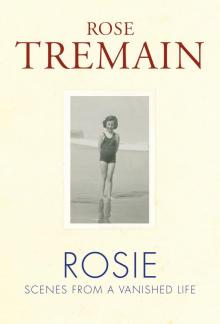 Rosie
Rosie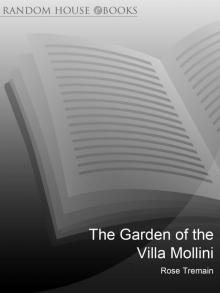 The Garden of the Villa Mollini
The Garden of the Villa Mollini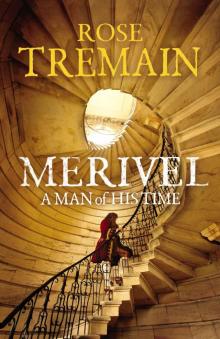 Merivel: A Man of His Time
Merivel: A Man of His Time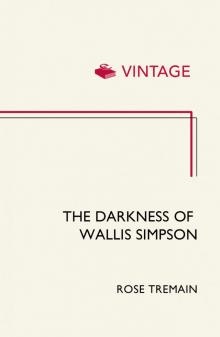 The Darkness of Wallis Simpson
The Darkness of Wallis Simpson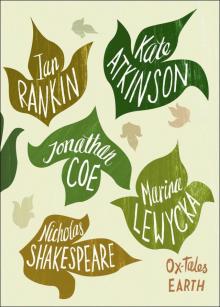 Earth
Earth Sacred Country
Sacred Country The Swimming Pool Season
The Swimming Pool Season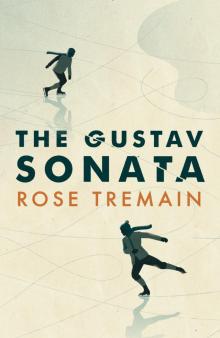 The Gustav Sonata
The Gustav Sonata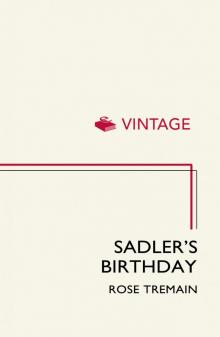 Sadler's Birthday
Sadler's Birthday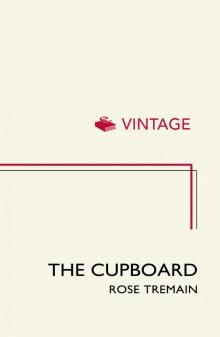 The Cupboard
The Cupboard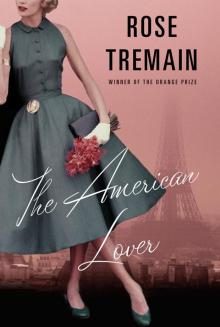 The American Lover
The American Lover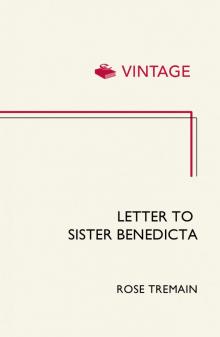 Letter to Sister Benedicta
Letter to Sister Benedicta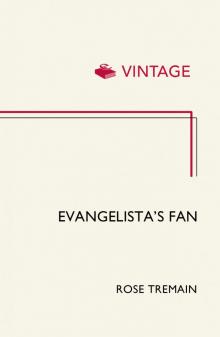 Evangelista's Fan
Evangelista's Fan Restoration
Restoration The Road Home
The Road Home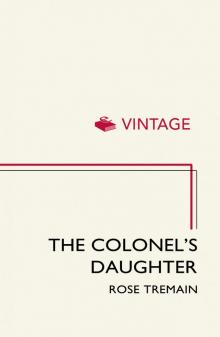 The Colonel's Daughter
The Colonel's Daughter The Way I Found Her
The Way I Found Her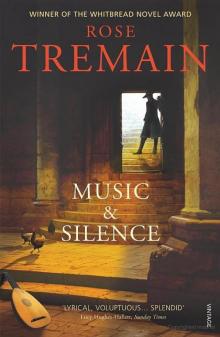 Music & Silence
Music & Silence